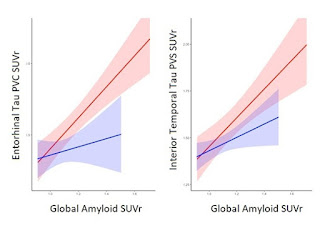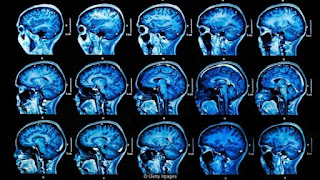Do Brain Changes at Menopause Make Women More Prone to Alzheimer’s?
More women have Alzheimer’s than men—but why? that it is not
simply because women live longer, but indeed reflects a biological
vulnerability. Recent epidemiological data found that women succumb to the
disease at younger ages than men do, with higher risk in their late 50s and
60s, but no difference in lifetime AD risk.
Scientists reported that women
carry a higher tangle burden than do men with the same amyloid load, suggesting
that one potential reason for their early onset might lie in a greater vulnerability
to tau pathology. This association was primarily driven by APOE4 carriers.
Other researchers blamed changes at menopause, when the brain’s glucose use
drops. One provocative talk claimed that female brains begin to cannibalize
their own myelin for energy during this time. APOE4 carriers appear most
vulnerable to this disruption, perhaps leaving their brains marked for future
degeneration.
If that sounds disturbing, women can take solace in a bit of
good news: New studies of hormone replacement therapy found that newly
postmenopausal women indeed can safely take several formulations without
harming their cognition. This may reassure women who have been wondering what
to do after a much-ballyhooed report in 2003 about ERT and dementia risk in
older women scared doctors, women and funders, for that matter away from this
treatment for some years.




Comments
Post a Comment